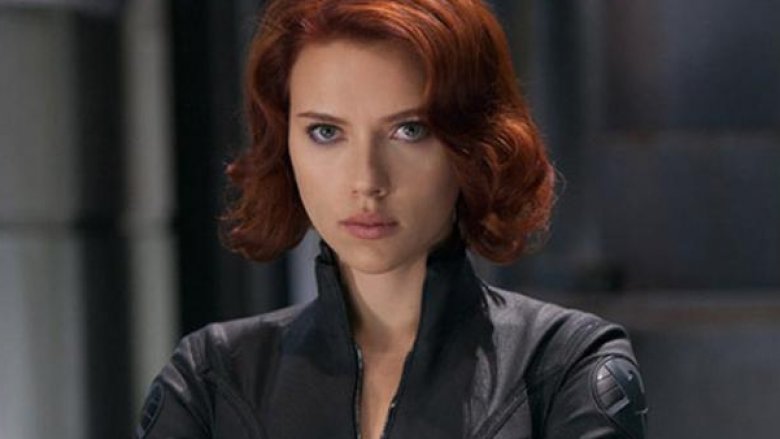Black Widow Rumor Suggests Film May Involve Y2K Bug
Some weird stuff has already happened in the Marvel Cinematic Universe, but if this new report from MCU Cosmic carries any credence, the Black Widow movie could feature something even stranger.
Jeremy Conrad, the founder and editor in chief of MCU Cosmic, relayed the rumor on Monday, September 24 in a post that detailed "a very reliable source" told him that "the Y2K bug on December 31, 1999 will play some part in the plot of Black Widow."
For those who were born post New Year's Eve 1999 or those who were far too young at the time to understand why the entire world was freaking out about trying to fix computer programs, the Y2K bug was a collection of computer failures that affected calendar storage and formatting data for all dates including and following January 1, 2000. Due to the way certain software was coded, some computers would display the year 2000 as '00 — making it impossible to differentiate from the year 1900.
Everyone thought that, because of the bugs, all computers and devices that had computer systems would malfunction on December 31, 1999 and the world would be sent back into the dark ages with no electricity or running water. That clearly didn't happen, but the fear that it would was real.
All that considered, it would be pretty bizarre for Black Widow to include the Y2K bug, no? Would Natasha Romanoff (Scarlett Johansson) have even known about it?
According to the MCU timeline, Natasha Romanoff (Scarlett Johansson) was born in 1984, meaning she would be 16 when the Y2K bug went down and even younger when paranoia about the turn of the century began sparking up. And, as viewers saw in flashback sequences in Avengers: Age of Ultron
, Black Widow was training with the fictional Soviet program the Red Room at the end of the 1990s and wasn't yet with S.H.I.E.L.D.
Any normal 16-year-old would have been aware of Y2K, but Natasha Romanoff certainly wasn't an average teenager. So, while the facts of the MCU place her as being an adolescent in 1999, she had bigger concerns than the Y2K bug — which is why Conrad went on to speculate that "the bug really was going to be some apocalyptic disaster in the Marvel universe" that was ultimately stopped, or "some nefarious plan that Natasha was involved with" but eventually abandoned because she couldn't handle "destroying the world in that way ... and that's what turned her to the side of S.H.I.E.L.D."
Furthermore, a past report published by That Hashtag Show claimed that Black Widow will be set in two separate time periods: one that chronicles Black Widow's involvement with the KGB, and another set "15 years after the fall of the Soviet Union." If part of Black Widow really does take place in the mid-2000s, perhaps the Y2K bug will serve as an element that bridges that time setting with Natasha's years spent working as a state secret agent.
Since all of this talk is unconfirmed conjecture as of this writing, there's no telling whether Black Widow will completely focus on a 16-year-old Natasha and some Y2K-related crisis. Since Marvel digitally de-aged Samuel L. Jackson and Clark Gregg to play younger versions of their respective characters Nick Fury and Agent Phil Coulsen in Captain Marvel, the studio could easily do it again with Johansson to make her look like a teen in Black Widow. Still, Marvel fans would probably be more excited to watch a slightly older Natasha for the majority of Black Widow instead, with the Y2K bug being included as a small part of the overall narrative.
Directed by Cate Shortland, Black Widow is without a release date for the time being, but it's only a matter of time before we learn whether this rumor is actually fact or just fiction.
